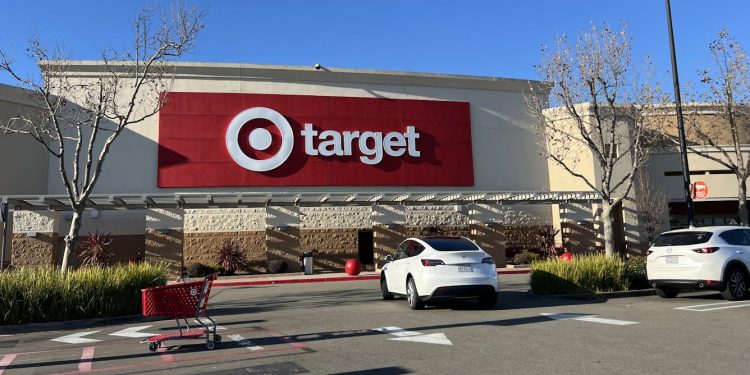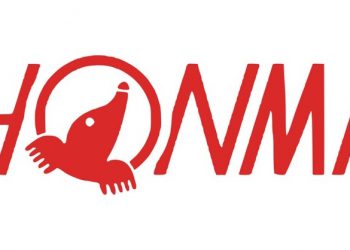Some Black consumers may be breaking up with Target this February.
It all started late last month, when the retailer announced that it was ending its diversity, equity and inclusion programs. The move drew widespread rebuke from social justice organizers, including New Birth Missionary Baptist Church Pastor Dr. Jamal Bryant. Although Target said one set of its racial-equity initiatives had already been scheduled to conclude, the timing was notable: The move came just days after the White House called for a federal DEI ban, and as several other companies took similar actions.
Beyond renaming its “supplier diversity” team – now called “supplier engagement” – and ending “diversity-focused surveys,” Target hasn’t said what the change will mean for the many Black entrepreneurs who sell everything from coffee to sunscreen on its shelves. The webpage for the retailer’s Black Beyond Measure initiative, which highlights dozens of Black-founded brands and connects business owners to a program designed to “democratize access to retail education,” remains active.
But Target’s critics, including Minneapolis-based civil rights attorney Nekima Levy Armstrong, view the move as a surrender to the new presidential administration’s attack on equity programs. In a news conference outside Target’s Minnesota headquarters on Jan. 30, 2025, Armstrong called for a nationwide boycott of the store to begin on the first day of Black History Month.
While many social media users posted in support of the boycott, some Black founders whose brands are stocked by Target – and there are dozens of them – have been more conflicted. Tabitha Brown, whose products can be found in various aisles, from books to cooking appliances, asked customers to reconsider boycotting Target. Withholding their dollars, Brown insisted, will hurt Black businesses far more than the corporations that sell their products.
This request for restraint garnered a mixed response on social media. Some Black consumers accused Black business owners of selling out the very racial community that contributed to their success.
So, why would a Black business owner ask consumers to patronize a retailer that signaled it doesn’t care about Black customers? And how did something as mundane as where people buy toilet paper and shampoo become a litmus test for racial consciousness in the first place?
Black consumers and the fight for dignity
The marketplace has long been a battleground where Black Americans have sought to assert their citizenship. Most of the nation’s biggest household brands didn’t begin to take African American consumers seriously until after World War II. Before that shift, advertisements and product packaging were more likely to feature degrading Black caricatures to appeal to white shoppers, than to address Black consumers directly.
This segregated commercial landscape reinforced the belief among some community members that Black people would not be taken seriously as citizens until they were taken seriously as consumers. They would need to vote with their dollars, patronizing only those brands and retailers that respected them.
In my research on marketing campaigns aimed at Black women, I’ve examined how the struggle for consumer citizenship complicated the dynamic between Black entrepreneurs and consumers. On the one hand, businesses have long leveraged Black ownership as a unique selling proposition in and of itself, urging shoppers to view Black brand loyalty as a path to collective racial progress.
Unlike their larger competitors, Black entrepreneurs relied on their racial community to stay afloat. Patronizing African American businesses could therefore be framed as a racial duty. Conversely, as African American advertising pioneers made clear, recognition from big brands was a political victory of sorts because it signaled that Black dollars were just as valuable as anyone else’s.
Competing for Black dollars
Corporate attention to Black consumers ebbs and flows in a cycle that is especially noticeable in the beauty and personal care industry. In seasons of limited competition for African American customers, entrepreneurs typically thrive, even while they struggle to meet the capital demands of a growing brand. Their success, however, beckons larger corporations, which then seek to capitalize on consumer niches they previously ignored.
Two common approaches that mass market brands pursue to compete for Black dollars include acquiring smaller, established Black brands and developing their own niche products. Large corporations deployed both strategies during a period of intense expansion into the beauty market of the 1980s.
Black owners tried to stave off their competition by creating a special emblem that alerted shoppers to their authenticity. Then, as now, social justice organizations, such as Rev. Jesse Jackson’s Operation PUSH, also initiated boycotts and urged Black consumers not to choose “lipstick over liberation.”
Nevertheless, many Black entrepreneurs sold their brands, and by 1986 nearly half of the Black hair care market was no longer Black-owned.
A linked fate
Parsing winners and losers within the world of Black enterprise is as difficult now as it was in earlier periods. African American business owners often possess a cultural consciousness that distinguishes their brands, even when they can’t match the resources of larger competitors. And as they figure out how to survive an uneven playing field, Black entrepreneurs sometimes face accusations of betraying their racial community.
In a market governed by the law of supply and demand, Black consumers benefit from increased competition. Yet, racial loyalty sometimes asks that they eschew these benefits for the sake of keeping Black dollars in Black hands.
Four years ago, when Target launched its Black Beyond Measure funding initiative, it seemed that the retailer had struck a rare balance in supporting Black brands and their customers. In addition to curating a collection of products to lure shoppers, Target used the campaign as an opportunity to position entrepreneurs to flourish well beyond Black History Month.
Now, as Black consumers and business owners weigh varying responses to the retailer’s decision to reverse their commitment to DEI values, one question endures: Do Black dollars matter?
![]()
Timeka N. Tounsel does not work for, consult, own shares in or receive funding from any company or organization that would benefit from this article, and has disclosed no relevant affiliations beyond their academic appointment.













